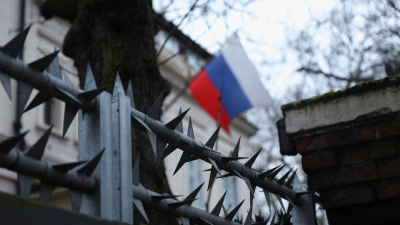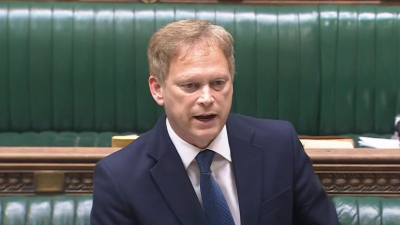TikTok stands ready to wage a legal battle against a newly minted law that threatens its existence in the United States, vowing "we aren't going anywhere," according to the app's CEO. President Joe Biden gave his seal of approval to the legislation, stipulating that unless its Chinese parent company, ByteDance, sells it within nine months, the platform will face a nationwide blockade. Despite TikTok's repeated assurances that it wouldn't compromise user data to the Chinese government, concerns linger among US lawmakers.
The bill, integrated into a $95 billion aid package for Ukraine and Israel, cleared the Senate on Tuesday before landing on Biden's desk early Wednesday. Reacting promptly, TikTok's chief executive, Shou Zi Chew, fired back in a video posted on the platform, asserting, "Rest assured, we aren't going anywhere. The facts and the Constitution are on our side, and we expect to prevail again." The company issued a statement labeling the law as unconstitutional and vowed to challenge it in court, asserting confidence in the strength of their case.
The anticipated legal confrontation may hinge on arguments asserting that banning TikTok would violate the First Amendment rights of its 170 million US users. Furthermore, content creators reliant on the platform for income may join the opposition, while China has signaled its resistance to a coerced sale.
Having captured the attention of approximately 170 million users in the US over seven years, TikTok has become a cultural phenomenon. However, concerns over its ownership by a Chinese entity have persisted in Washington. ByteDance introduced the Chinese variant, Douyin, in 2016, before launching TikTok internationally in November 2017. Its rapid ascent, driven by its popularity among Gen Z, has established it as a potent force in social media.
Yet, TikTok's success has also made it a target for bipartisan scrutiny in Washington and other Western nations, amid apprehensions regarding data usage. US officials fear that Chinese authorities could compel ByteDance to surrender American user data, despite TikTok's assurances to the contrary. Additionally, concerns have been raised about the platform's potential influence on American users through content manipulation.
The utilization of TikTok by the vast network of nearly four million federal government employees in the United States is currently prohibited on agency-owned devices, except for specific exemptions such as law enforcement, national security, and security research purposes. A parallel restriction is also in effect for civil servants in the UK. India took the pioneering step of banning TikTok in 2020 in the aftermath of a violent clash on the India-China border, resulting in the loss of at least 20 Indian soldiers' lives.
An intriguing facet of TikTok's status is its unavailability in Chinese app stores, where state control over the internet is pervasive, with Douyin serving as the substitute platform. Just last month, TikTok's CEO, Shou Zi Chew, directly addressed US users, urging them to oppose the bill mandating the app's sale and accusing US lawmakers of endeavoring to shutter the platform. In a video shared on the platform, Chew asserted that the bill would inevitably lead to TikTok's prohibition in the United States, emphasizing that even its proponents acknowledge this as their objective.
While the ban on TikTok's usage by federal government employees on agency devices is already in effect in the US, there remain exceptions for specific purposes such as law enforcement, national security, and security research. Senate Commerce Committee Chair Maria Cantwell clarified that the initiative to compel TikTok's sale isn't motivated by a desire to "punish" ByteDance or TikTok but rather to safeguard against foreign adversaries engaging in espionage, surveillance, or other malevolent activities that could jeopardize Americans, including military personnel and government staff.
In conclusion, the ongoing saga surrounding TikTok's presence in various countries underscores the complexities of balancing national security concerns with the demands of a globalized digital landscape. As governments navigate the intricate web of geopolitical tensions and technological advancements, the fate of platforms like TikTok remains uncertain. Whether through legislative measures or international diplomacy, the future of TikTok will continue to be shaped by the interplay of regulatory frameworks, corporate interests, and geopolitical dynamics on the world stage.







